
Bryggen: Bergen's Historic Wharf of Wonders
Bryggen, located in the heart of Bergen, Norway, is a captivating blend of history and charm. This UNESCO World Heritage Site is a testament to the city's rich maritime past, dating back to the Hanseatic League era. The colorful wooden buildings that line the wharf are iconic, offering a picturesque backdrop that transports you back in time. As you stroll through Bryggen’s narrow alleys, you’ll discover a maze of shops, cafes, and museums. Each corner tells a story, from ancient trade routes to contemporary crafts. The Bryggens Museum provides an in-depth look at the area's history, with artifacts that date back to the 14th century, while the Hanseatic Museum offers a glimpse into the lives of the merchants who once thrived here. Beyond its historical allure, Bryggen is a vibrant cultural hub. The area hosts various events throughout the year, including the Bergen International Festival and the Bergen Food Festival, ensuring there is always something exciting happening. Whether you're a history buff, a foodie, or simply in search of a scenic spot to explore, Bryggen is a must-visit destination that promises a unique and enriching experience.
Local tips in Bryggen
- Visit early in the morning or late in the afternoon to avoid crowds and get the best photos.
- Wear comfortable shoes as the cobblestone streets can be uneven.
- Check out Bryggens Museum for a deeper understanding of the area's history.
- Try local delicacies at the nearby fish market for a true taste of Bergen.
- Take a guided tour to learn fascinating stories that you might miss on your own.
Bryggen: Bergen's Historic Wharf of Wonders
Bryggen, located in the heart of Bergen, Norway, is a captivating blend of history and charm. This UNESCO World Heritage Site is a testament to the city's rich maritime past, dating back to the Hanseatic League era. The colorful wooden buildings that line the wharf are iconic, offering a picturesque backdrop that transports you back in time. As you stroll through Bryggen’s narrow alleys, you’ll discover a maze of shops, cafes, and museums. Each corner tells a story, from ancient trade routes to contemporary crafts. The Bryggens Museum provides an in-depth look at the area's history, with artifacts that date back to the 14th century, while the Hanseatic Museum offers a glimpse into the lives of the merchants who once thrived here. Beyond its historical allure, Bryggen is a vibrant cultural hub. The area hosts various events throughout the year, including the Bergen International Festival and the Bergen Food Festival, ensuring there is always something exciting happening. Whether you're a history buff, a foodie, or simply in search of a scenic spot to explore, Bryggen is a must-visit destination that promises a unique and enriching experience.
Iconic landmarks you can’t miss
Bergenhus Fortress
Discover the rich history and architectural beauty of Bergenhus Fortress, a must-visit landmark in Bergen, Norway, showcasing centuries of Norwegian heritage.
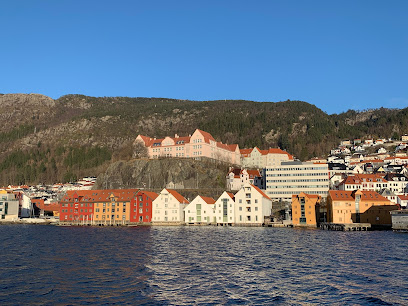
Bryggen
Discover the historic charm of Bryggen, Bergen's UNESCO World Heritage Site known for its stunning wooden architecture and vibrant local culture.
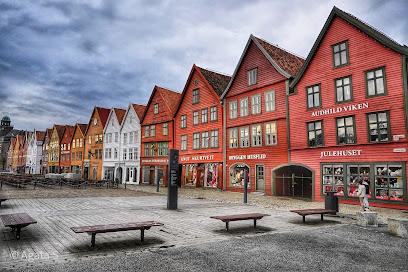
Bryggen Hansa Quarter
Explore the UNESCO World Heritage site of Bryggen Hansa Quarter in Bergen, Norway, where history, culture, and stunning architecture await.
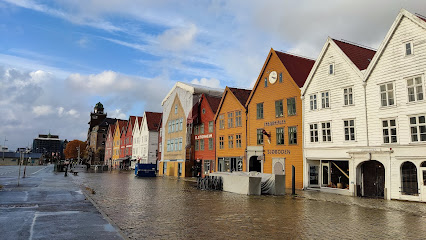
Bryggens Museum
Explore Bergen's rich maritime heritage at Bryggens Museum, where the history of the Hanseatic League comes alive through captivating exhibits and artifacts.
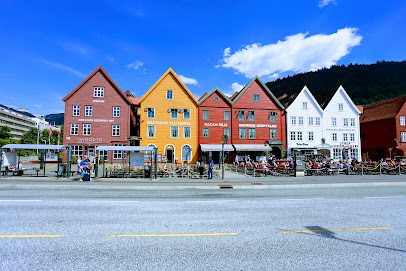
Sailor's Monument
Explore Sailor's Monument in Bergen, a historical landmark celebrating the city's maritime heritage amidst a vibrant cultural atmosphere.
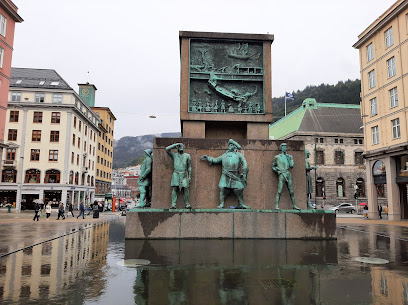
Edvard Grieg Statue
Discover the inspiring Edvard Grieg Statue in Bergen, a musical monument celebrating Norway's legendary composer amidst stunning city views.
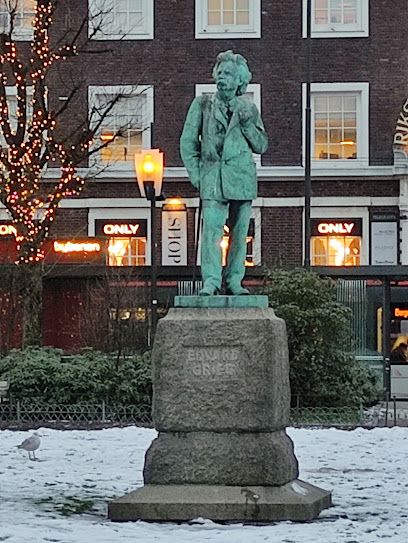
Bryggen Harbour view
Explore the enchanting Bryggen Harbour in Bergen, a UNESCO World Heritage site filled with history, vibrant culture, and stunning waterfront views.
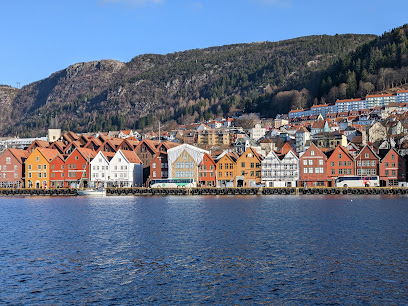
Famous Wharf Skuteviksbrygge
Explore the picturesque Skuteviksbrygge Wharf in Bergen, a vibrant hub of culture, dining, and stunning waterfront views that reflect Norways maritime heritage.
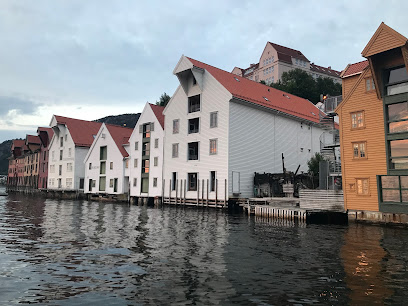
Old Bergen House for walking
Discover the serene beauty and historical significance of Old Bergen House, a must-visit tourist attraction in Bergen, Norway.
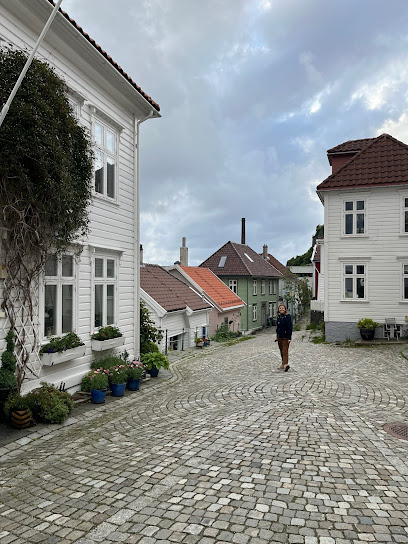
Dramshusen
Experience the rich maritime history and stunning architecture of Dramshusen, an essential stop for every tourist in Bergen, Norway.
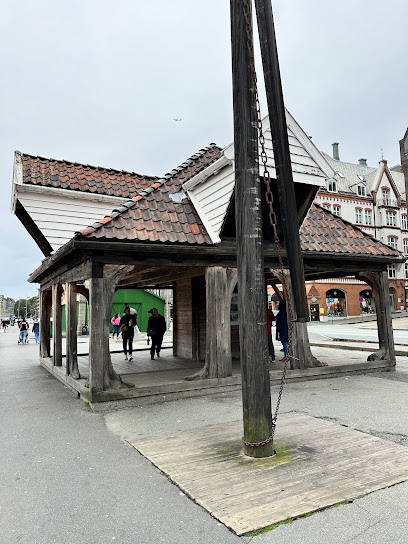
Unmissable attractions to see
Bergenhus Fortress
Explore Bergenhus Fortress: A captivating blend of history, architecture, and stunning views in the heart of Bergen, Norway.
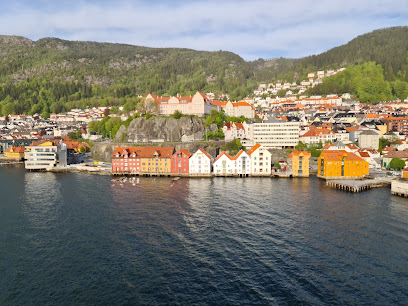
Akvariet i Bergen - The National Aquarium
Discover the enchanting world of marine life at Akvariet i Bergen, Norway's National Aquarium, where adventure meets education in a stunning waterfront setting.
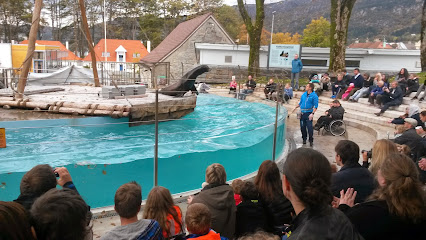
Bryggen
Discover Bryggen, a UNESCO World Heritage site in Bergen, where history meets vibrant culture and stunning coastal views.
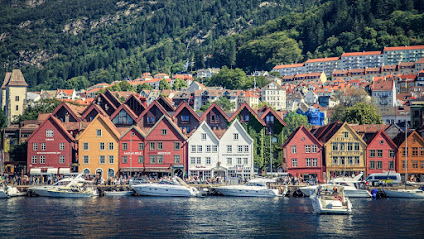
Bryggen Hansa Quarter
Discover the historic Bryggen Hansa Quarter in Bergen, Norway – a UNESCO World Heritage Site of colorful wooden houses and rich maritime heritage.
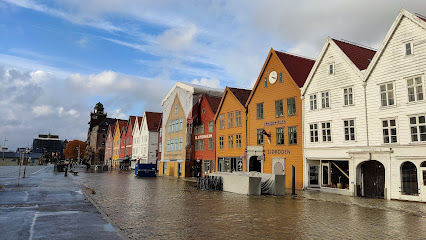
Bryggens Museum
Discover the medieval treasures of Bergen at Bryggens Museum, showcasing the city's rich history through captivating exhibits and archaeological finds.
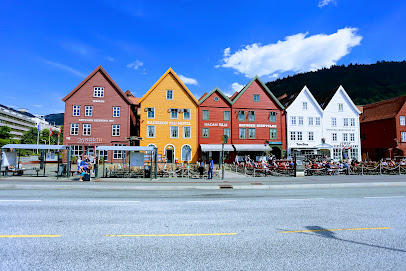
Hanseatic Museum
Explore the Hanseatic Museum in Bergen to uncover the city's maritime history and the legacy of the Hanseatic League's vibrant trade culture.

The King Håkon's Hall
Step into Norway's medieval past at King Håkon's Hall, a historic landmark showcasing royal heritage and architectural beauty in Bergen.
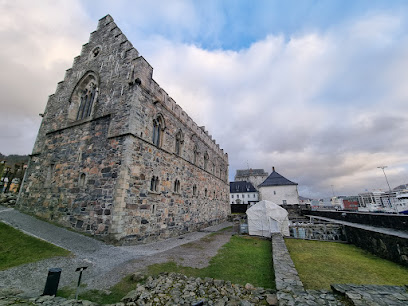
Sailor's Monument
Explore the Sailor's Monument in Bergen, a historical landmark celebrating the city's rich maritime heritage, amidst the vibrant Torgallmenningen square.
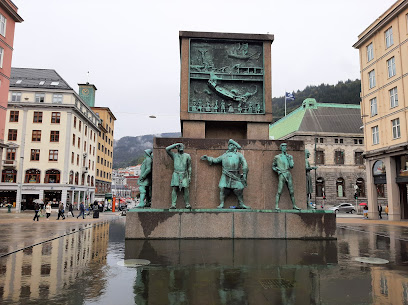
Edvard Grieg Statue
Discover the Edvard Grieg Statue in Bergen, a tribute to Norway's musical genius amidst stunning scenery and cultural vibrancy.
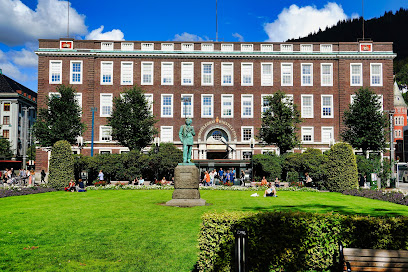
Bryggen Harbour view
Explore Bergen's Bryggen Harbour, a historical gem featuring colorful wooden buildings, stunning views, and a vibrant cultural scene.
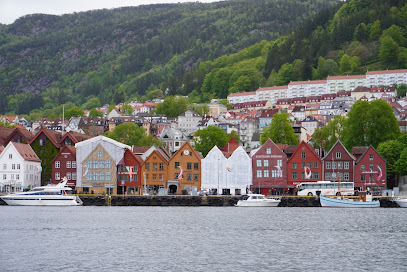
Famous Wharf Skuteviksbrygge
Explore Skuteviksbrygge in Bergen, a historic wharf offering stunning waterfront views, vibrant local culture, and a glimpse into Norway's maritime heritage.
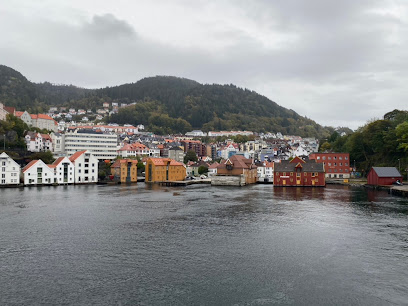
Old Bergen House for walking
Explore Old Bergen House, a captivating tourist attraction steeped in history and charm, set amidst the beautiful landscapes of Bergen.
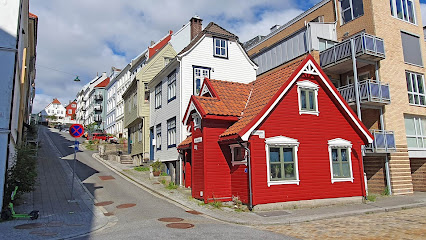
Vetrlidsallmenningen, Bergen
Explore Vetrlidsallmenningen, a vibrant street in Bergen, Norway, filled with stunning views, local shops, and rich cultural heritage.
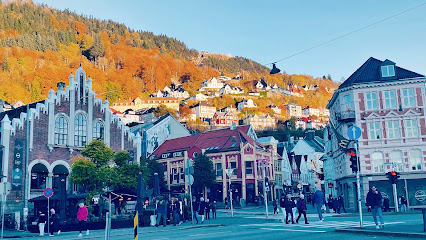
Dramshusen
Explore Dramshusen, Bergen's historic treasure, where stunning architecture meets vibrant culture in a picturesque setting.
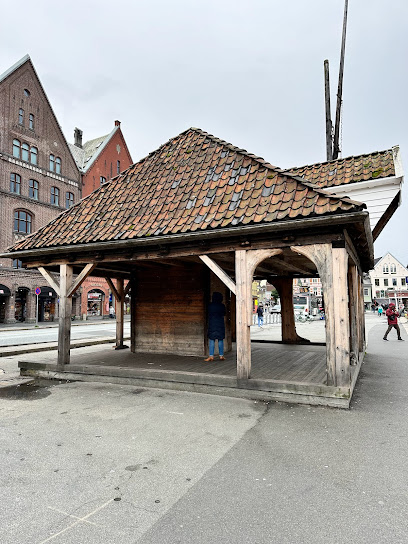
Essential places to dine
AS Bryggestuen - Bryggeloftet
Discover exquisite seafood dining at AS Bryggestuen, where Bergen's maritime heritage meets culinary excellence.
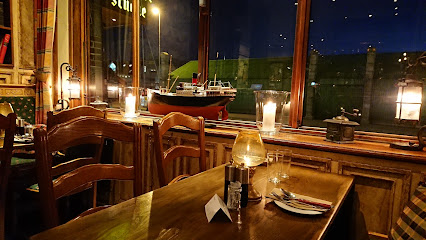
Olivia Zachariasbryggen
Savor authentic Italian flavors at Olivia Zachariasbryggen in Bergen – where every meal feels like a celebration.
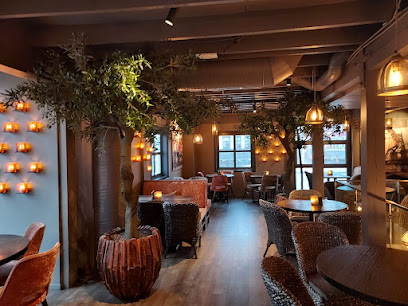
The Unicorn Fish Restaurant
Experience Bergen's finest seafood at The Unicorn Fish Restaurant - where every dish tells a story of Norway's coastal bounty.
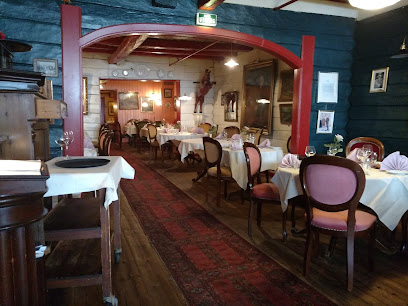
Madam Felle
Experience Bergen's culinary delights at Madam Felle - where exquisite flavors meet vibrant live music for an unforgettable night out.
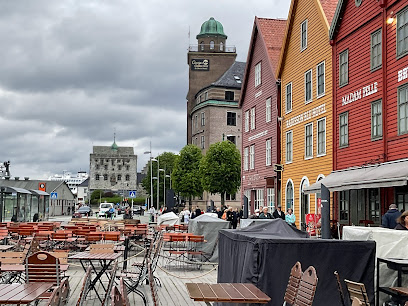
Soya Restaurant AS
Discover exquisite Asian flavors at Soya Restaurant AS in Bergen – where tradition meets modern culinary artistry.
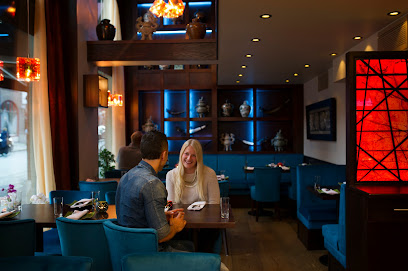
Bryggen Tracteursted
Experience the essence of Norwegian cuisine at Bryggen Tracteursted in Bergen - where tradition meets taste in a historic setting.
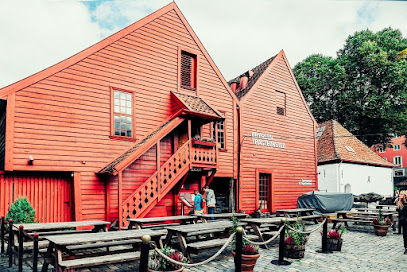
Restaurant 1877
Discover authentic Norwegian cuisine at Restaurant 1877 in Bergen - a culinary delight featuring local ingredients and seasonal specialties.
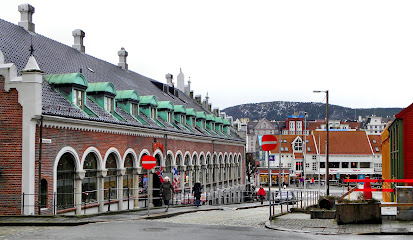
FG Restaurant & Bar
Experience exquisite dining at FG Restaurant & Bar in Bergen – where premium steaks meet vibrant nightlife in a cozy atmosphere.
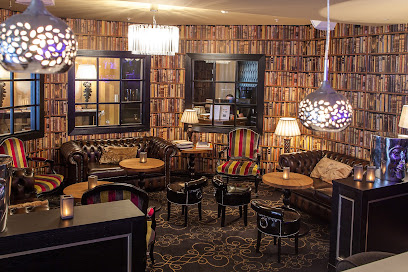
26 North Restaurant & Social Club
Discover the flavors of Norway at 26 North Restaurant & Social Club - where local ingredients meet contemporary dining in Bergen.
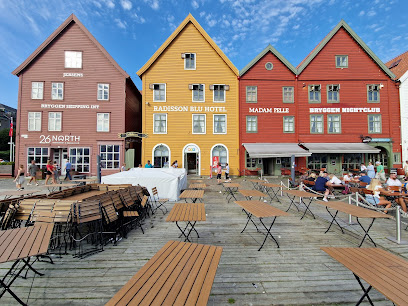
To Kokker
Discover Bergen's culinary artistry at To Kokker, where local ingredients meet innovative cooking for an unforgettable dining experience.
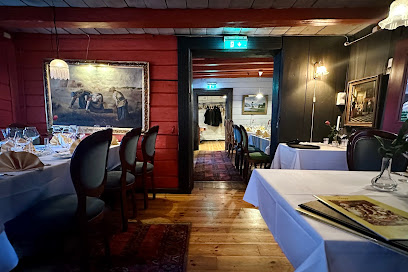
Markets, malls and hidden boutiques
Nilssen Bryggen - Gifts, Souvenirs, Jackets
Discover unique gifts and local treasures at Nilssen Bryggen, a premier souvenir store in the heart of Bergen, Norway.
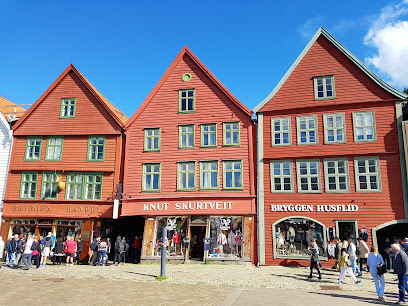
Ting Bergen
Explore Ting Bergen for unique Nordic gifts and home goods that capture the essence of Norwegian design and craftsmanship.
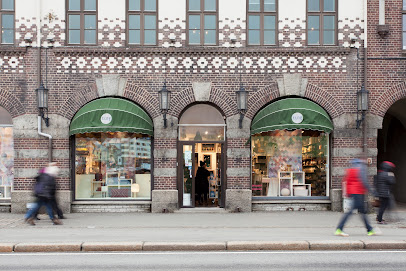
Heim Bryggen AS
Explore Heim Bryggen AS, a charming gift shop in Bergen, offering unique local crafts, clothing, and home goods for every taste.
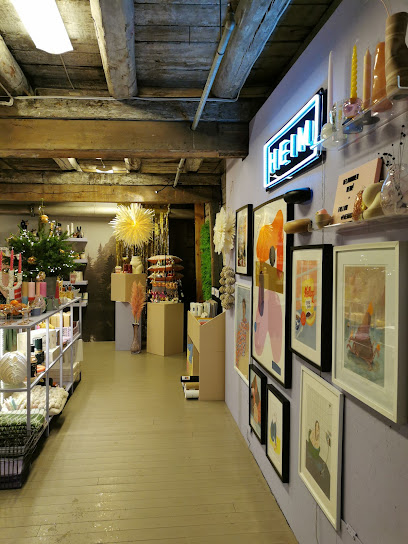
Way Nor AS avd Bergen
Explore Way Nor AS in Bergen for authentic Norwegian souvenirs that capture the spirit and craftsmanship of Norway's rich heritage.
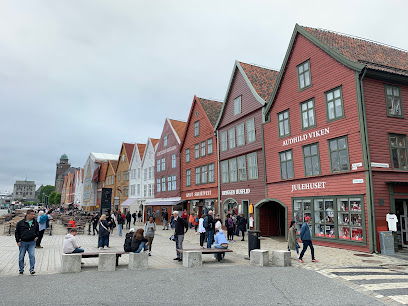
Bryggen Husflid
Experience the beauty of Norwegian craftsmanship at Bryggen Husflid in Bergen, where tradition meets modern fashion.
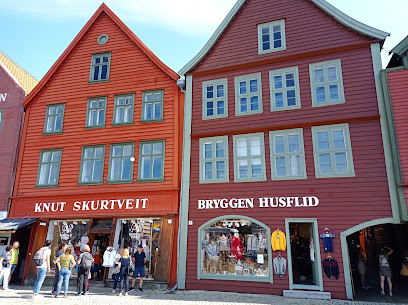
Berle Bryggen
Explore Berle Bryggen - A charming souvenir store in Bergen offering authentic Norwegian crafts and a taste of local culture.
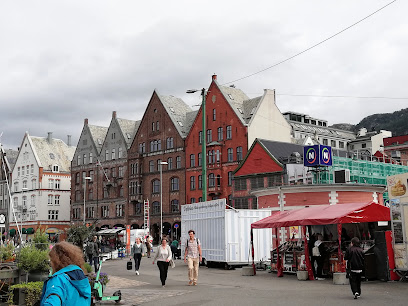
Audhild Viken avd Bergen
Explore Audhild Viken in Bergen for authentic Norwegian gifts and souvenirs reflecting the beauty of Norwegian culture and craftsmanship.
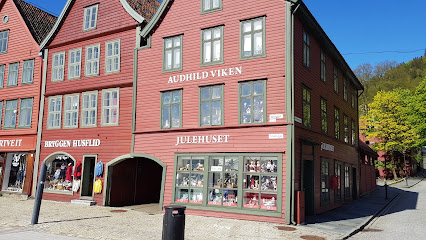
Moomin Shop Bergen
Discover the whimsical world of Moomins at Moomin Shop Bergen, nestled in the historic Bryggen area, offering unique gifts and souvenirs.
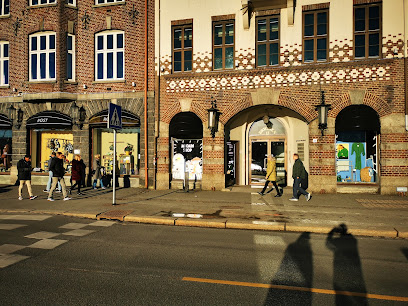
Dale Of Norway
Explore Dale Of Norway, a premier clothing store in Bergen, showcasing exquisite Norwegian knitwear that blends tradition with modern style.
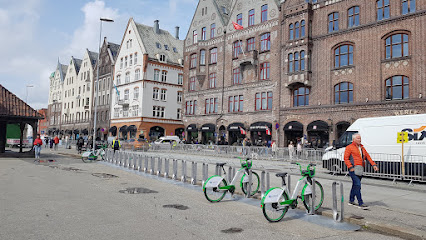
The No 1 Gift Centre
Discover unique Norwegian souvenirs and local handicrafts at The No 1 Gift Centre in Bergen's historic Bryggen area, a treasure trove of culture.
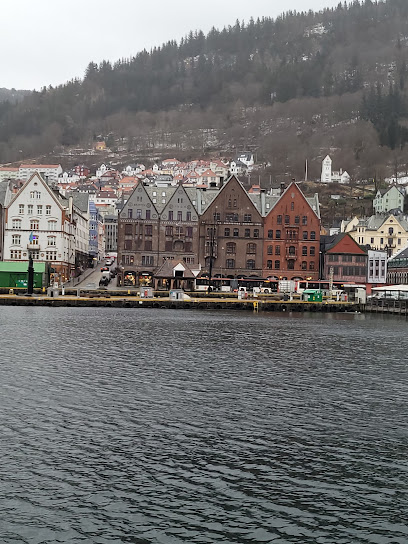
Essential bars & hidden hideouts
No Stress Bergen
Discover No Stress Bergen, a vibrant bar in the heart of the city, perfect for unwinding with friends and enjoying a lively atmosphere.
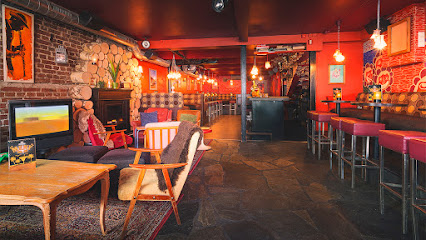
Bar3
Discover the vibrant nightlife of Bergen at Bar3, where local flavors and a lively atmosphere await every visitor.
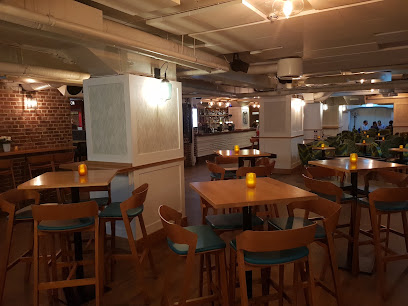
The Library Bar
Discover The Library Bar in Bergen, where innovative cocktails and a cozy atmosphere create the perfect nightlife experience.
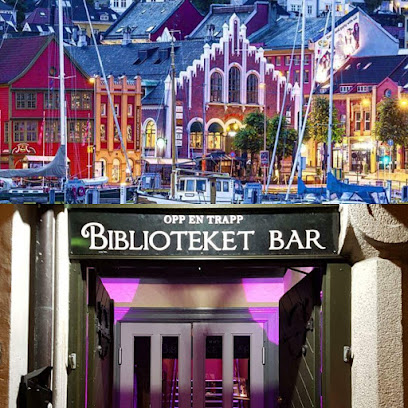
Flying Dutchman Bar
Discover the vibrant atmosphere of the Flying Dutchman Bar, a charming pub in Bergen offering local brews and stunning waterfront views.
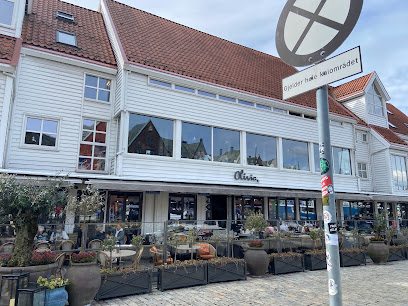
Salong Bar & Billiard
Discover the lively Salong Bar & Billiard in Bergen, where drinks, billiards, and a vibrant atmosphere await you.
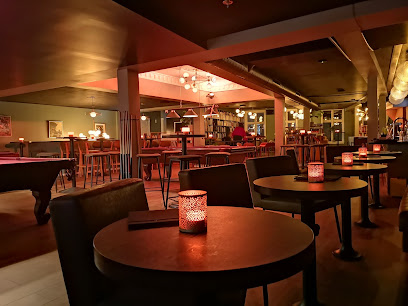
Baklommen bar
Discover Baklommen Bar: A cozy haven in Bergen offering authentic drinks and a vibrant atmosphere for an unforgettable night out.
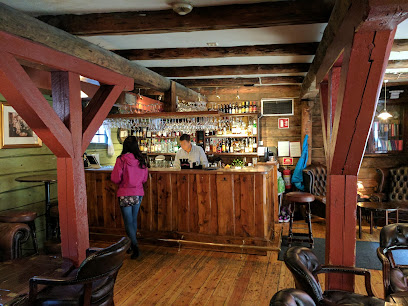
Sjøboden
Experience the vibrant atmosphere of Sjøboden, a bar that blends local brews, delicious pub fare, and the rich culture of Bergen.
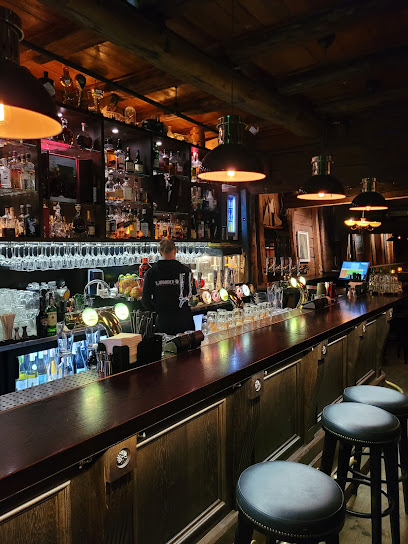
Bryggen Nightclub
Discover the energetic nightlife of Bergen at Bryggen Nightclub – where unforgettable nights and vibrant music await.
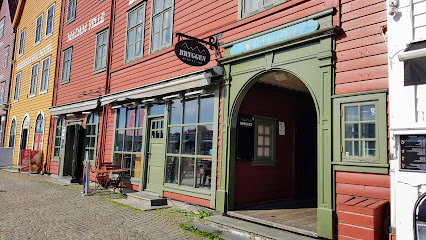
Bryggen Pianobar AS
Discover the enchanting Bryggen Pianobar AS, where delightful drinks and live piano music create an unforgettable night out in Bergen's historic district.
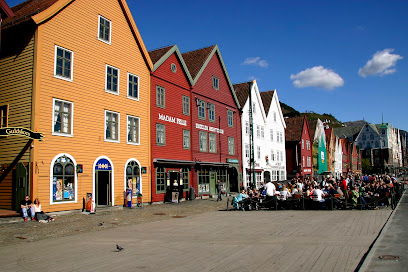
Wave Fun Pub & Bar
Experience the lively atmosphere and local flavors at Wave Fun Pub & Bar in the heart of Bergen, Norway, a must-visit for nightlife enthusiasts.
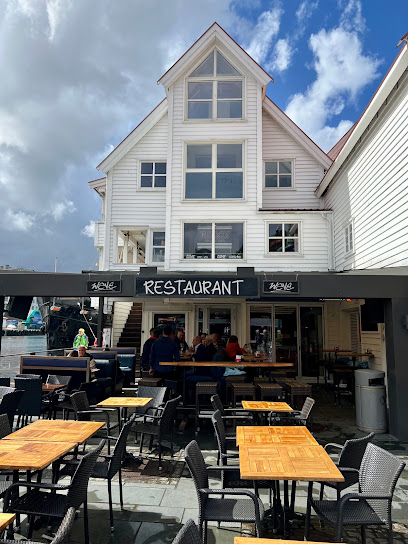
Local Phrases
-
- HelloHei
[hay] - GoodbyeHa det
[ha deh] - YesJa
[yah] - NoNei
[nay] - Please/You're welcomeVær så god
[vair so goh] - Thank youTakk
[tahk] - Excuse me/SorryUnnskyld
[oon-skuld] - How are you?Hvordan har du det?
[vor-dan har doo deh] - Fine. And you?Bra. Og du?
[bra oh doo] - Do you speak English?Snakker du engelsk?
[snak-ker doo eng-elsk] - I don't understandJeg forstår ikke
[yay for-stor eek-keh]
- HelloHei
-
- I'd like to see the menu, pleaseJeg vil gjerne se menyen, takk
[yay vil yer-neh se meh-nyen, tahk] - I don't eat meatJeg spiser ikke kjøtt
[yay spee-ser eek-keh shøt] - Cheers!Skål!
[skawl] - I would like to pay, pleaseJeg vil gjerne betale, takk
[yay vil yer-neh bet-tal-leh, tahk]
- I'd like to see the menu, pleaseJeg vil gjerne se menyen, takk
-
- Help!Hjelp!
[yelp] - Go away!Gå vekk!
[goh vek] - Call the Police!Ring politiet!
[ring po-lee-tee-et] - Call a doctor!Ring en lege!
[ring en leg-eh] - I'm lostJeg er tapt
[yay er tahpt] - I'm illJeg er syk
[yay er sook]
- Help!Hjelp!
-
- I'd like to buy...Jeg vil kjøpe...
[yay vil shur-peh] - I'm just lookingJeg ser bare
[yay sair bah-reh] - How much is it?Hvor mye koster det?
[vor me-eh kost-er deh] - That's too expensiveDet er for dyrt
[deh er for deert] - Can you lower the price?Kan du senke prisen?
[kan doo sen-keh pree-sen]
- I'd like to buy...Jeg vil kjøpe...
-
- What time is it?Hva er klokka?
[vah er klok-ka] - It's one o'clockKlokken er ett
[klok-ken er ett] - Half past (10)Halv ti
[halv tee] - MorningMorgen
[mor-gen] - AfternoonEttermiddag
[et-ter-mee-dag] - EveningKveld
[kvelld] - YesterdayI går
[ee gor] - TodayI dag
[ee dahg] - TomorrowI morgen
[ee mor-gen] - 1En
[en] - 2To
[toh] - 3Tre
[treh] - 4Fire
[feer-eh] - 5Fem
[fem] - 6Seks
[sehks] - 7Syv
[soov] - 8Åtte
[otta] - 9Ni
[nee] - 10Ti
[tee]
- What time is it?Hva er klokka?
-
- Where's a/the...?Hvor er en/et...?
[vor er en/et] - What's the address?Hva er adressen?
[vah er a-dres-sen] - Can you show me (on the map)?Kan du vise meg (på kartet)?
[kan doo vee-seh may (poh kar-teh)] - When's the next (bus)?Når går neste (buss)?
[norr gor nes-teh (boos)] - A ticket (to ....)En billett (til ....)
[en bee-let (teel)]
- Where's a/the...?Hvor er en/et...?
History of Bryggen
-
Bryggen, which translates to 'the wharf,' was founded in the late 11th century as a trading post by King Olav Kyrre. Its strategic location along the harbor made it a vital hub for trade. By the 14th century, Bryggen became a significant port for the Hanseatic League, a powerful commercial alliance of merchant guilds from northern Germany. The Bryggen wharf was the focal point of trade between Norway and continental Europe, facilitating the export of fish and the import of goods such as grain, cloth, and wine.
-
On June 15, 1702, a devastating fire swept through Bryggen, destroying a large portion of the wooden structures that characterized the neighborhood. The fire prompted the local government to implement new building regulations, which led to the construction of more fire-resistant brick houses. This event was pivotal in shaping Bryggen's architectural landscape, as it transitioned from a predominantly wooden structure to a blend of brick and wood.
-
In 1979, Bryggen was designated as a UNESCO World Heritage Site due to its historical significance and well-preserved medieval wooden buildings. The designation recognized Bryggen as an important cultural and historical site, showcasing the unique architectural style and urban planning of the Hanseatic period. Preservation efforts have since been implemented to maintain its historical integrity and promote its cultural heritage.
-
The late 20th century saw a cultural revival in Bryggen, with increased interest in its history and heritage. Art galleries, craft shops, and museums began to populate the area, transforming it into a vibrant cultural hub. The Fish Market, located nearby, became a popular tourist attraction, offering fresh seafood and local delicacies, further revitalizing the economy and cultural significance of Bryggen.
-
Today, Bryggen stands as a symbol of Bergen's rich history and cultural heritage. The area is a bustling tourist destination, drawing visitors from around the world to explore its narrow alleyways, historical buildings, and museums. Events such as the Bergen International Festival celebrate the region's cultural vibrancy, while local artisans continue the traditions of craftsmanship that have thrived in Bryggen for centuries.
Bryggen Essentials
-
Bryggen is located in the heart of Bergen, easily accessible from various neighbourhoods. From Bergen Airport (Flesland), you can take the airport bus (Flybussen) directly to the city center, which takes about 30 minutes. Alternatively, local buses and taxis are available. If you're arriving by train, Bergen Station is approximately 1.5 kilometers from Bryggen; you can reach it by a short walk or by taking the light rail (Bybanen) towards the city center.
-
Bryggen is a compact area best explored on foot, allowing you to fully appreciate its historic charm. Public transportation options include the Bybanen light rail, which connects Bryggen to other parts of Bergen. For longer distances, local buses are available, and taxis can be hailed easily throughout the city. Bicycles can be rented from various local providers, and there are designated bike lanes for safer travel.
-
Bryggen is generally a safe area for tourists, but standard precautions should be taken. While most crime is non-violent, petty theft can occur, particularly in crowded tourist spots. Be cautious in less populated areas at night, especially around the waterfront. It’s advisable to keep your belongings secure and be aware of your surroundings.
-
In case of an emergency, dial 112 for police, fire, or ambulance services in Norway. Local hospitals and clinics are available in Bergen for medical emergencies. It's advisable to have travel insurance that covers emergencies. Pharmacies are also accessible throughout Bryggen for minor health issues.
-
Fashion: Do wear comfortable footwear for walking; the cobblestone streets can be uneven. Don't wear overly casual or beachwear outside of the waterfront areas. Religion: Do respect local customs, especially when visiting St. Mary's Church or any other religious sites. Public Transport: Do validate your ticket before boarding. Don't eat or drink on public transport. Greetings: Do greet locals with a friendly 'Hei' (Hi) and a smile. Eating & Drinking: Do try local seafood and traditional dishes at one of the many restaurants. Don't engage in loud conversations in public spaces.
-
To experience Bryggen like a local, explore the side streets and lesser-known shops for unique handicrafts and local art. Visit the fish market early in the morning for the freshest catch and to see the local hustle. Engage with local artisans, many of whom are happy to share their stories and craftsmanship. Don't miss the chance to enjoy a coffee at one of Bryggen's quaint cafes along the waterfront, where you can soak in the atmosphere while people-watching.
Nearby Cities to Bryggen
-
Things To Do in Stavanger
-
Things To Do in Ålesund
-
Things To Do in Molde
-
Things To Do in Kristiansand
-
Things To Do in Oslo
-
Things To Do in Fredrikstad
-
Things To Do in Skagen
-
Things To Do in Trondheim
-
Things To Do in Frederikshavn
-
Things To Do in Aalborg
-
Things To Do in Karlstad
-
Things To Do in Gothenburg
-
Things To Do in Viborg
-
Things To Do in Randers
-
Things To Do in Herning







